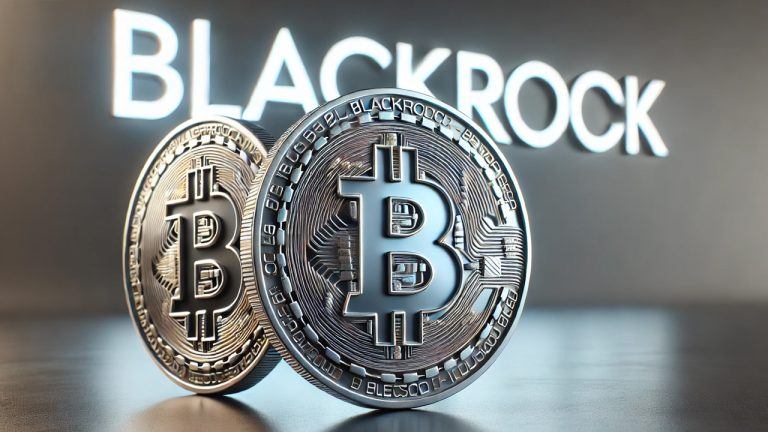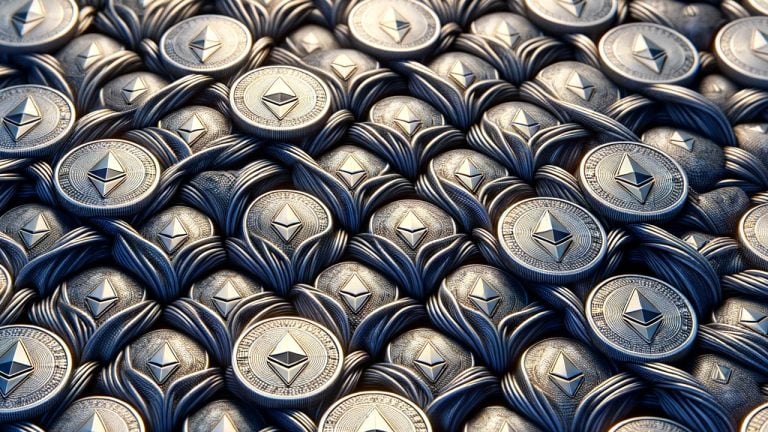Lebanon is back in the headlines as the conflict in the Middle East intensifies. Before these latest developments, Lebanon had already become a symbol of how quickly a seemingly stable society can descend into chaos.
If you follow major events in the global economy, you’ll probably recall that Lebanon’s recent past serves as a vivid example of what a full-blown currency collapse looks like in a modern, advanced economy. While there are some great books that describe hyperinflation in detached, academic terms, what’s often missing is the human story – what it’s actually like to be a normal, productive person with a family and a bank account, and to live through the collapse of your country’s currency.
For a while now, I’ve known that my friend Tony Yazbeck, co-founder of The Bitcoin Way, had experienced this reality. But it wasn’t until I watched this interview with him that I realized how valuable his story is for everyone to hear. Tony’s story offers a rare, personal glimpse into what it means when your country’s banking system disintegrates, when you lose access to your savings, when food prices rise 10-fold in a few months, and when even basic necessities like medicine and fuel become luxuries.
I asked Tony if he could explain not only why Lebanon collapsed, but also how bitcoin could have been a lifeline in such a dire situation.
Lebanon: A country on the brink
Before its economic collapse, Lebanon was a vibrant, cosmopolitan country, often called the “Paris of the Middle East.” Its economy thrived on banking, tourism, and services, positioning it as a bridge between East and West. For Tony, this prosperity wasn’t an illusion—it was his daily life. “My life in Lebanon was extraordinary,” he recalls. “I ran three thriving businesses and lived a luxurious lifestyle. Whether it was the latest cars, the best restaurants, or the hottest clubs, Beirut had it all.”
Yet beneath the surface, cracks were forming. Lebanon’s banking sector, once a source of pride, was built on unsustainable practices, and the country was drowning in debt. For years, Lebanon’s central bank had pegged the Lebanese pound to the U.S. dollar at an artificially high rate, creating a false sense of stability.
This currency peg required constant inflows of dollars to maintain. When those inflows dried up, the house of cards collapsed.
In 2019, Lebanon’s banks began restricting access to savings, imposing informal capital controls without any legal framework. “Overnight, people lost access to their funds,” Tony says. “You couldn’t withdraw your own money, and even if you could, it was in Lebanese pounds that were rapidly losing value.”
For those unfamiliar with a currency crisis, the limitation of bank withdrawals is one of the first signs that the system is failing. The government and banks try to delay the inevitable by locking down money in the system. By then, it’s too late.
From thriving businesses to $70 in hand
In early 2020, Lebanon defaulted on its foreign debt, and the value of the Lebanese pound plummeted. Hyperinflation set in, destroying the purchasing power of ordinary people.
Tony watched helplessly as his savings evaporated and his businesses crumbled. “I went from being a successful entrepreneur to having just $70 to my name in what felt like the blink of an eye,” he recalls. “I couldn’t pay rent, school fees, or even afford basic groceries.”
Hyperinflation took hold with shocking speed. “A loaf of bread that once cost 1,500 LBP shot up to over 30,000 LBP within months,” Tony explains. Fuel prices were even worse. “In early 2023, a gallon of gas went from 25,000 LBP to over 500,000 LBP in just a few weeks. It was impossible to keep up with the prices.”
The destruction wasn’t limited to material wealth; the psychological toll was immense. Tony describes the anxiety and panic that came with watching his hard-earned success disappear. “For the first time in my life, I didn’t know what to do. I felt completely helpless.”.
A fractured civil society
As Lebanon’s currency collapsed, so did its social fabric. People who once lived comfortable, middle-class lives suddenly found themselves struggling for survival. Basic goods became scarce, and the price of everyday items skyrocketed.
Power dynamics within communities shifted as those who controlled essentials like food and fuel gained disproportionate influence. “There were reports of gangs taking over neighborhoods, controlling access to goods and demanding protection fees,” Tony recalls.
Even electricity became a luxury. With the national grid in shambles, most people had to rely on private generators, but the cost of running them was astronomical. “Monthly generator fees jumped from 200,000 LBP to over 4,000,000 LBP,” Tony explains. Many families were forced to live without power for long stretches of time.
In response to the crisis, people turned to alternative forms of exchange. Bartering became common, with people trading goods and services directly. “If you couldn’t pay in cash, you might offer plumbing work in exchange for groceries,” Tony says. The U.S. dollar, already widely used before the collapse, became the default currency for many transactions. Digital currencies, and especially stable coins like Tether (USDT), also gained traction as people sought ways to preserve value outside the collapsing banking system.
What could have been: Bitcoin as a lifeline
As Tony recounts the collapse, questions loom large: Could this have been prevented? Or at the very least, could individuals have somehow protected themselves better? For Tony, the answer is clear: Yes – with access to bitcoin, many of the worst effects of the crisis might have been avoided.
“If I had known about bitcoin before the crisis, it could have saved me,” Tony says without hesitation. “Bitcoin would have given me a way to store value outside the banking system, which completely failed. I wouldn’t have been locked out of my own savings, and I could have preserved my wealth as the Lebanese pound collapsed.”
Bitcoin is immune to the kind of capital controls Lebanon’s banks imposed in 2019. No government or bank can freeze your bitcoin or restrict access to it. In a country where the banking system became a trap, bitcoin would have provided a way out.
Even as Lebanon’s currency lost over 90% of its value, bitcoin held its purchasing power globally. “Bitcoin isn’t tied to any government or central bank, so it can’t be manipulated the way the Lebanese pound was,” Tony explains. “It’s a hedge against hyperinflation, which would have been critical when prices were doubling and tripling every few months.”
Bitcoin’s status as a digital bearer asset would have been equally important. “When cash becomes worthless and banks stop functioning, how do you pay for things? How do you trade?” Tony asks.
In Lebanon, bartering and informal exchanges became necessary for survival. In many situations, bitcoin may have served as a viable alternative to barter, worthless Lebanese pounds, and U.S. dollars that were difficult to obtain.
Lessons for the world
Lebanon’s crisis offers a stark warning to the rest of the world. While many people in developed countries believe that their economies are too stable to collapse in such a way, Tony’s experience should give us pause. “What happened to me could happen anywhere,” he warns. “Don’t think you’re immune just because you live in a so-called stable country. The mechanics of fiat currency are the same everywhere.”
Tony points to the U.S. as an example of a country that is walking the same dangerous path as Lebanon. “The U.S. national debt now exceeds $35 trillion. Since 1971, when the dollar was taken off the gold standard, the money supply has increased by over 8,000%. That kind of money printing can’t go on forever.”
While the U.S. benefits from being the issuer of the world’s reserve currency, that status isn’t guaranteed indefinitely. “All fiat currencies are headed to zero eventually,” Tony cautions. “Some will fail sooner than others, but they will all fail. The U.S. dollar might be the last to go, but its turn is coming.”
The lessons from Lebanon’s collapse are clear: Protect your wealth before a crisis hits, and don’t assume that your government or banking system will be there to save you when things go south. For Tony, that means turning to bitcoin. “Bitcoin is the only asset that’s truly un-confiscatable,” he says. “It’s the only way to escape a broken system.”
A new mission to rebuild with bitcoin
In the aftermath of Lebanon’s collapse, Tony has dedicated his life to helping others avoid the same fate. He founded The Bitcoin Way, a bitcoin education and technical services business designed to teach people how to use bitcoin to protect themselves from currency crises. “The crisis forced me to study and understand money,” Tony says. “I realized that the fiat system is a scam, designed by thieves to steal and control us. Bitcoin is the solution.”
Every day, Tony educates his clients about how to take control of their financial future using bitcoin. “Once you understand how bitcoin works, you see the flaws in traditional fiat systems,” Tony explains. “You learn how to manage your assets securely, make transactions independently of banks, and protect your wealth from inflation and economic instability.”
The road ahead
Tony believes that the collapse of the Lebanese pound was avoidable, but that would have required structural reforms that never came. “If Lebanon had tackled corruption, maintained transparency, and adjusted the currency peg responsibly, things might have turned out differently,” he says.
But given the deep-rooted corruption in Lebanon’s political and financial systems, the collapse was almost inevitable.
As Tony reflects on his experience, he sees parallels between pre-crisis Lebanon and the current state of many developed economies. “We’re seeing the same issues – rising debt, unsustainable monetary policies, and corrupt institutions,” he says.
The warning signs are there, but many people ignore them, believing that their country is somehow different.
For those who are paying attention, Tony offers practical advice. “Start educating yourself about bitcoin now, before it’s too late,” he urges. “Diversify your assets and don’t rely on fiat currency to preserve your wealth. The mechanics of hyperinflation don’t change just because you live in a wealthy country.”
Lebanon’s collapse is not just a cautionary tale for people living in developing economies. It’s a wake-up call for the entire world.
As governments continue to print money at unprecedented rates, the risk of a global currency crisis grows. Bitcoin offers a way out – an inflation-proof alternative that can protect the wealth of individuals when fiat currencies fail.
Tony’s experience is a stark reminder of the fragility of fiat systems and the importance of financial sovereignty. “With bitcoin in your custody, you have the power to protect yourself from corruption, manipulation, and inflation,” Tony says.
“You don’t need permission from a bank or a government to manage your own money. And that’s exactly what makes bitcoin the ultimate tool for financial freedom.”
This is a guest post by Dave Birnbaum. Opinions expressed are entirely their own and do not necessarily reflect those of BTC Inc or Bitcoin Magazine.
Bitcoin Magazine – Bitcoin News, Articles and Expert InsightsRead More



